Gay Felony Lawyer, West Virginia
Sponsored Law Firm
-
 x
x

Click For More Info:
-
The Law Offices of Claude S. Smith III
805 Bigley Avenue Charleston, WV 25302» view mapCriminal Defense Law Working With Clients One On One
As your attorney, I will make sure you know that I am here for you. I will keep you updated on your case as it progresses.
800-936-8471
Not enough matches for Gay Felony lawyer.
Below are all Gay Criminal lawyers.
Claude S. Smith, III
✓ VERIFIEDWhether you have suffered an accident while on the job or suffered an injury during a car accident or semi truck accident, The Law Offices of Claude S... (more)
Kendra L. Bunn
✓ VERIFIEDSince 1999, Ms. Bunn has dedicated her entire career to the practice of immigration law. She was one of the first female attorneys to practice immigra... (more)
Ronald N. Walters
✓ VERIFIEDRon has, over the last decade, assisted clients by planning and designing settlements to address future needs and ensure any government benefits are p... (more)
Jon D. Hoover
✓ VERIFIEDJon graduated from Widener University School of Law in 1999. Jon returned to West Virginia and worked briefly with the Kanawha County Prosecuting Atto... (more)
 Claude S. Smith, III Charleston, WV
Claude S. Smith, III Charleston, WV Practice AreasExpertise
Practice AreasExpertise




